Who may request a cognitive and or learning assessment and why?
Parents, school counselors or guidance officers, general practitioners (GPs), paediatricians and child psychiatrists commonly refer young clients to child psychologists for a cognitive or learning assessment if the child is experiencing learning problems at school. These assessments can ascertain whether they have any learning problems that may be causative or contributing to a clinical presentation and to aid in accurate clinical formulation and treatment planning.

What does the assessment involve?
- If you haven’t already attended an initial interview at which you provided a background history an
initial interview of one hour will be needed for the psychologist to collect this information. It is
helpful if you can bring along copies of your child’s school reports and any other reports you may
have pertaining to your child’s difficulties from other professionals. This interview is usually held at
our rooms but can be held at school if special arrangements are made. After discussion with you in
this initial appointment the psychologist can advise and plan with you the best assessment process
based on the needs of your child. - Sometimes it’s important to have an introductory one hour appointment with your child before
starting the formal testing, particularly if they experience anxiety, as this will increase the likelihood
of your child being comfortable, whilst also allowing for valuable clinical observation of your child. - A standard cognitive and learning assessment usually involves three to five hours of testing on
standardized cognitive and learning assessment tools such as the Wechsler Intelligence Scales and
the Wechsler Individual Achievement tests. Sometimes it may be necessary to complete other
specific tests like behavioural questionnaires or specific memory testing which may require more
assessment time. - All assessment results are compiled in a detailed psychological report with a summary of relevant
background information and history, clinical observations, test results prepared and analysed by the
psychologist. The substantial report also includes recommendations for parents, GPs, teachers in
relation to academic, social, behavioural and emotional functioning. This analysis and preparation
of the report usually requires between three to four hours of the psychologist’s time,
depending on how many tests are administered. The report is charged at the psychologist’s
hourly rate. - A one-hour feedback session is then arranged for you and sometimes your child to discuss the
results, clinical implications and recommendations. At this appointment you will be provided with a
copy of the report, however payment for the feedback session and report will be required first. - An optional attendance at a meeting of your child’s school may be arranged to discuss the results
with educational personnel if this is something you require. This may take approximately one hour
of the psychologist’s time depending on travel time.
What are the costs?
The costs of the assessment depend on the time taken to complete the full assessment, report and feedback session and the hourly rate of the psychologist you are consulting. The standard number of hours with the initial interview, testing, report and feedback is approximately 10-12 hours, however in complex cases when more assessments are needed and the introductory session with your child and a school visit are necessary, then it may take up to 14 hours of the psychologists time that you will be charged for.
The costs vary, but usually fall between;
- $2000-$2500 for straight Cognitive & Learning Assessments; and
- $2500-$3000 for Diagnostic Assessments (AD/HD, ASD, Personality)
Are there any Rebates available?
Cognitive and learning assessments are not able to be claimed on Medicare or Private Health funds.
The initial interviews and feedback sessions may attract a Medicare rebate with a valid Mental Health
Care Plans or with private health funds.
Specifics of Assessment Types
Learning Assessment
- Identify the child’s potential for learning (intelligence) and whether the child is in fact meeting their potential academically (reading skills, writing, spelling and mathematics);
- Provides information as to how the child is performing compared with peers and grade expectations;
- Identifies how the child learns best;
- Helps provide teachers with valuable information about how children differ in order to match the classroom teaching to the specific needs of the children;
Clinical /Diagnostic Assessment
A thorough investigation using psychological tests, parent and child interviews and parent questionnaires, to identify if a child has a childhood disorder (eg depression, AD/HD, anxiety, autism spectrum disorders, behaviour disorders, etc.)
Developmental Assessment
Identifies developmental delays in language, motor skills, social and emotional skills, cognitive (thinking) and self help skills.
